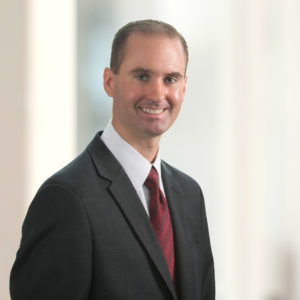On April 17, 2019, a bipartisan, bicameral framework for statutory reform of 35 U.S.C. § 101 was released by several members of the U.S. Congress.
Among other things, the framework outlines a closed list of exclusive categories of statutory subject matter which alone should not be eligible for patent protection, and a “practical application” test to ensure that the statutorily ineligible subject matter is construed narrowly.
The framework was announced by U.S. Senators Chris Coons (D-Del.) and Thom Tillis (R-N.C.) of the Senate Judiciary Subcommittee on Intellectual Property, and Representatives Doug Collins (R‑Ga.), and Steve Stivers (R-Ohio). In recent months, bipartisan discussions have searched for a possible legislative solution to the patent eligibility issue facing biotechnology, medical diagnostics, and software-related innovations. The framework released comes just two months after the Senate Judiciary Subcommittee on Intellectual Property was revived by Senators Coons and Tillis on Feb. 7, 2019. Senator Thom Tillis issued a press release explaining the reasoning behind the reform.
“Today, U.S. patent law discourages innovation in some of the most critical areas of technology, including artificial intelligence, medical diagnostics, and personalized medicine,” said Senator Coons. “That’s why Senator Tillis and I launched this effort to improve U.S. patent law based on input from those impacted most.”
“Senator Coons and I requested to reinstate the Senate Judiciary Subcommittee on IP because we saw a need to reform our nation’s complicated patent process, starting with section 101,” said Senator Tillis. “The release of this framework comes after multiple roundtables and extensive discussions with stakeholders who would be affected by reforming Section 101.”
The framework released, available here, includes the following provisions:
- Keep existing statutory categories of process, machine, manufacture, or composition of matter, or any useful improvement thereof.
- Eliminate, within the eligibility requirement, that any invention or discovery be both “new and useful.” Instead, simply require that the invention meet existing statutory utility requirements.
- Define, in a closed list, exclusive categories of statutory subject matter which alone should not be eligible for patent protection. The sole list of exclusions might include the following categories, for example:
- Fundamental scientific principles
- Products that exist solely and exclusively in nature
- Pure mathematical formulas
- Economic or commercial principles
- Mental activities
- Create a “practical application” test to ensure that the statutorily ineligible subject matter is construed narrowly.
- Ensure that simply reciting generic technical language or generic functional language does not salvage an otherwise ineligible claim.
- Statutorily abrogate judicially created exceptions to patent-eligible subject matter in favor of exclusive statutory categories of ineligible subject matter.
- Make clear that eligibility is determined by considering each and every element of the claim as a whole and without regard to considerations properly addressed by 102, 103, and 112.
Coons, Tillis, Collins, Johnson, and Stivers are soliciting feedback on the proposal and encourage stakeholders to email IntellectualProperty@tillis.senate.gov.
This framework is an important development and may indicate the direction patent reform is headed. It will also be interesting to see how feedback from stakeholders affects the current framework and any forthcoming patent reform.
Suiter Swantz IP is a full-service intellectual property law firm providing client-centric patent, trademark, and copyright services. If you need assistance with an intellectual property matter and would like to speak with one of our attorneys, please contact us at info@suiter.com.
Leon G. Castro is a patent agent with Suiter Swantz IP. Leon received his B.S. and M.S. in Electrical Engineering from the University of Nebraska Lincoln.
Leon has 10 years of experience investigating prior art and performing patent-related searches. He presently focuses on patent prosecution and has drafted scores of patent applications and office action responses.
Leon is registered to practice before the United States Patent and Trademark Office.

